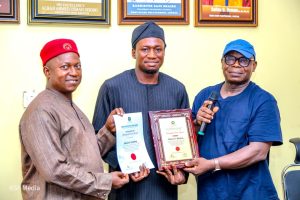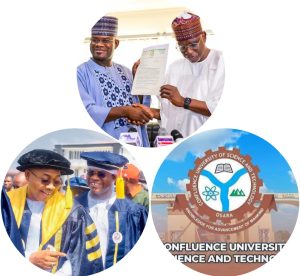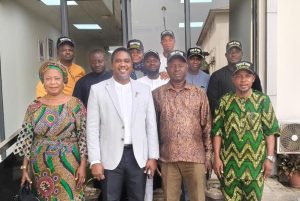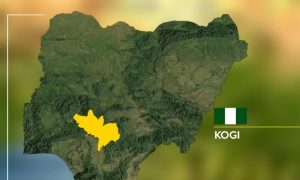When 37.5% Is a Pass: Nigeria’s Education System Is on a Dangerous Path

By Sylvester M.Onoja OON
In Nigeria today, a score of 37.5 per cent now qualifies a student for university admission. For polytechnics and colleges of education, it is 25 per cent. Let that sink in.
We are calling failure “success.” We are telling a generation that effort is optional, that excellence is unnecessary, and that mediocrity is good enough to build a nation. As an educationist, planner, administrator, and teacher, this moment is deeply troubling. It is not just a policy misstep. It is a national emergency — a direct threat to the future of our society.
The Joint Admissions and Matriculation Board (JAMB), the gatekeeper of Nigeria’s tertiary admissions, recently announced that the minimum cut-off mark for university entry is now 140 out of 400 — effectively 37.5 percent. For polytechnics and colleges of education, it’s an astonishing 100 out of 400 — a mere 25 per cent. These are not pass marks; they are declarations of surrender. Surrender to failure. Surrender to a system that has failed to nurture, support, and educate its young minds.
Let’s call this what it is: an academic catastrophe in motion.
Proponents of the new benchmark may argue that the move ensures access and equity, that it gives more students — especially those from underprivileged or rural backgrounds — a shot at higher education. But access without competence is no victory. It is a betrayal.
By lowering standards this drastically, we are not fixing the system; we are legitimizing its collapse. We are institutionalizing ill-preparedness and pushing underqualified students into institutions that will be ill-equipped to remediate their foundational gaps. The result is predictable: a university graduate who can barely write, reason critically, or compete globally. A teacher who can not teach. An engineer who can not calculate. A nurse who can not diagnose. This is not equity; this is malpractice.
No serious country in the world rewards failure with admission into its most crucial institutions. While other nations are pushing the boundaries of innovation, research, and educational excellence, Nigeria is sliding down a staircase to nowhere.
Consider Finland, South Korea, or Singapore — nations that have transformed their fortunes through fierce investment in education and uncompromising standards. They did not climb by lowering the bar; they rose by helping students reach higher.
In Nigeria, our response to falling academic performance is not to improve teaching standards, revamp the curriculum, invest in teacher training, or address inequality. Instead, we move the goalposts. We normalize the unacceptable.
This is not just about JAMB or cut-off marks. This is about the soul of our educational system. If the foundation is weak, the entire structure collapses. If students learn early on that failure is tolerable and even rewarded, we are setting them up — not just for academic failure, but for a lifetime of diminished expectations.
We must confront the truth: Nigerian education is not in a slow decline — it is in free fall. From poor teacher remuneration to dilapidated infrastructure, from outdated curricula to unchecked examination malpractice, every pillar of the system is cracking.
The decision to peg the university cut-off at 37.5 per cent is merely a symptom of this deeper rot. It is not the disease but a telling sign that the patient is dying.
First, we must reverse this policy immediately. Standards must reflect the seriousness of the task ahead: preparing a generation to lead, innovate, and compete globally. This will mean investing in foundational education — particularly public primary and secondary schools. We must ensure that no child is left behind, not by pretending they have passed, but by helping them actually succeed.
Second, a national conversation must begin — with urgency. Educationists, policymakers, unions, civil society, and parents must convene around one shared truth: we can not continue like this. A national summit on education reform should be convened, with the outcomes legally binding and politically actionable.
Third, let’s restore the dignity of our teachers. No system can rise above the quality of its educators. Better training, pay, and support for teachers will ensure that students don’t enter examinations destined to fail.
Finally, we must promote accountability at every level of the education system — from local school boards to the Federal Ministry of Education. We can no longer reward failure with silence or indifference.
Our future depends on what we do now. Nations are not built on minerals, oil, or borrowed capital — they are built in classrooms. The knowledge economy has no space for those who pretend their way through.
Lowering pass marks is not compassion. It is not policy innovation. It is a shortcut to national ruin.
We must rise, all of us — educators, parents, students, and leaders — to halt this quiet catastrophe before it turns into a generational disaster. The stakes are too high for silence.
Nigeria deserves better. Her children deserve better. And the time to act is now.
The writer is an educationist, policy planner, and teacher with over 60 years of experience in Nigeria’s education sector.








